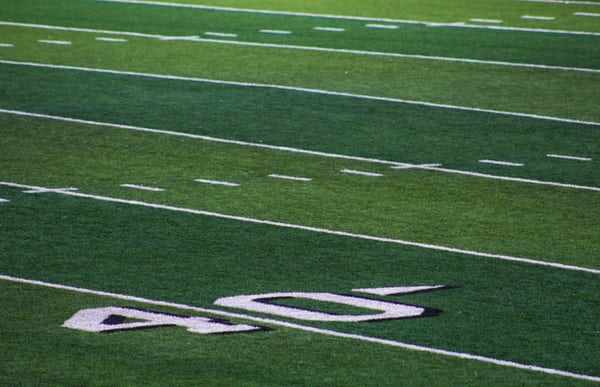
As sports betting continues to grow across the United States, each state has implemented its own set of regulations to ensure that the industry remains secure, legal, and fair.
In Montana, where sports betting has been legalized but comes with unique restrictions, geolocation technology plays a pivotal role in ensuring compliance with state laws. This technology helps determine where a bettor is physically located when placing a bet, ensuring that all wagers are made within Montana’s boundaries and according to state regulations.
In this blog, we will explore how geolocation technology is being utilized in Montana’s sports betting industry and why it is so crucial for maintaining integrity and legality.
What is Geolocation Technology?
Geolocation technology is a tool that uses GPS, Wi-Fi signals, cell tower data, and IP addresses to determine a user’s physical location. In the context of sports betting, this technology ensures that wagers are only placed in areas where sports betting is legally permitted.
How Does Geolocation Work in Sports Betting?
For online sports betting platforms, geolocation technology is integrated into the platform’s app or website to determine the location of the bettor. It does this by:
- GPS and Wi-Fi Signals: The bettor’s mobile device or computer uses available GPS and Wi-Fi signals to pinpoint their location.
- Cell Tower Triangulation: If a bettor is using a mobile device, cell towers are used to verify their location by triangulating their signal.
- IP Address Verification: The bettor’s IP address is cross-referenced with their device’s physical location to ensure they are within Montana’s borders when placing a bet.
Why Is Geolocation Important for Montana Sports Betting?
Montana’s sports betting laws are unique compared to other states, and strict location-based restrictions make geolocation technology critical. Here’s why it plays such a key role:
1. Legal Compliance
In Montana, sports betting is allowed, but only in specific locations—namely, at kiosks located within licensed bars and restaurants. Bettors cannot place wagers from anywhere within the state but must be physically present at these licensed venues to participate in sports betting Montana. Geolocation technology ensures that all bets are placed legally, verifying that the bettor is within one of these designated locations.
How Geolocation Enforces Legal Boundaries
- Restricted Locations: Unlike other states where online sports betting is widely accessible, Montana requires that bets be placed from approved physical locations. Geolocation technology detects whether or not a bettor is in one of these approved venues, preventing unauthorized wagering.
- Preventing Illegal Betting: Without geolocation, bettors might attempt to place bets from unlicensed areas or even from out of state. This technology safeguards the integrity of Montana’s sports betting industry by ensuring that all wagers comply with state laws.
2. Tax Revenue and Regulation
Montana, like many other states, uses sports betting as a way to generate tax revenue. Geolocation helps ensure that this revenue remains within the state by preventing people from outside Montana from placing bets. By verifying that bettors are physically located in licensed venues, geolocation technology helps regulate the industry and ensures the state collects the proper taxes from legal betting activity.
3. User Security and Fairness
Geolocation technology also provides a layer of security for bettors. By verifying a bettor’s location, platforms can detect and prevent fraudulent activity, such as someone attempting to place bets from a restricted or prohibited area. This not only ensures fairness in the betting process but also protects users from the potential legal consequences of betting from unauthorized locations.
How Geolocation Protects Bettors
- Account Security: Geolocation verification acts as an additional security measure, ensuring that only the account holder can place bets from authorized locations.
- Preventing Fraud: Geolocation helps prevent attempts to spoof location data or use VPNs to trick the system into allowing illegal bets. This ensures that all bets are legitimate and placed by individuals within Montana’s legal parameters.
Challenges of Geolocation Technology in Montana
While geolocation technology is essential for ensuring the legality of sports betting in Montana, it is not without its challenges. In a state like Montana, where rural areas are widespread, geolocation technology must work effectively even in places with limited connectivity.
1. Accuracy in Remote Areas
Montana’s vast and sparsely populated landscape poses a challenge for geolocation technology. In remote areas with limited Wi-Fi or cell service, accurately pinpointing a bettor’s location can be difficult. For sports betting platforms, ensuring that geolocation technology works seamlessly in these areas is key to providing a consistent and reliable betting experience.
2. Connectivity Issues
Bettors in Montana may face issues with connectivity, especially in rural regions. Weak GPS signals or unreliable internet connections can lead to difficulties in verifying a bettor’s location, causing delays or preventing bets from being placed altogether. Sports betting platforms must account for these challenges by optimizing their geolocation services to work in a variety of conditions.
The Future of Geolocation in Montana’s Sports Betting Industry
As sports betting in Montana continues to evolve, advancements in geolocation technology will likely play a critical role in shaping the future of the industry. With innovations in satellite technology, 5G connectivity, and more precise GPS systems, geolocation is expected to become even more accurate and reliable.
Potential Enhancements in Geolocation Technology
- Improved Accuracy: Future updates to geolocation systems could improve accuracy, making it easier to pinpoint a bettor’s exact location, even in areas with limited connectivity.
- Faster Verification: As technology improves, geolocation services could offer faster verification, reducing wait times for bettors and ensuring a smoother user experience.
- Enhanced Security: Ongoing advancements in geolocation could further enhance security, making it nearly impossible to manipulate location data or place illegal bets.
Conclusion
Geolocation technology is a crucial component of Montana’s sports betting industry. It ensures legal compliance, protects bettors, and secures tax revenue for the state. By verifying that bets are placed within approved venues and within Montana’s borders, geolocation technology maintains the integrity of the sports betting market. As this technology continues to advance, it will play an even more significant role in shaping the future of sports betting in Montana, ensuring that both bettors and operators enjoy a secure and fair betting environment.




